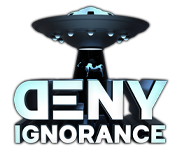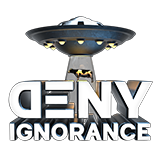03-05-2024, 12:16 AM
This post was last modified 03-05-2024, 12:17 AM by Maxmars.
Edit Reason: formatting
I don't like criticizing what people believe, as a matter of principle. "Believing something" doesn't mean religiously believing exactly, more like "holding an idea or concept close to one's heart."
I found this article, not much in the way of 'reading material' because it is relatively brief. But the author manages to "describe" somethings that she believes... and I have heard such statements before, elsewhere... in real life, and/or uttered by some talking head of media note.
The problem I am having is that I can't resist adding my observations about these beliefs. I wonder if that's a treatable condition.
From Cyberjournalist.net: Fighting Misinformation: Tools and Strategies for Journalists
The article self-describes when the author states "This article delves into the various technologies and methodologies employed in the journalism industry to combat the spread of false news ..."
Misinformation has always been a concern in journalism, but the digital age has amplified its spread and impact. Social media platforms, with their vast reach and rapid sharing capabilities, have become fertile grounds for the dissemination of false news. This environment poses unique challenges for journalists who are committed to truth and accuracy.
I am afraid I have to disagree from the onset. "Misinformation" has been used since early in the days of press, as a tool. It was used as a bartering tool to garner good relations with local government, strongmen, what have you, it was intentionally inserted into "news" support ideological goals, it was embraced entirely by those who feel they should be arbiters of truth and reality for their audience. In fact, is it was so useful that modern marketing was built upon it (e.g. "Drink Super Soda! It will make you happy!" ... if that's not misinformation I don't know what is...)
What the blossoming of the information consumer age brought was many more eyes, and a much broader audience than the misinformers ever had before.
As for journalists who are committed to truth and accuracy... well... it sounds nice doesn't it? But today's "journalism" is not what the old textbooks describe... today's journalists are almost exclusively "activist journalists." They are no longer content with relaying information... they want to tell you what to think about their information ... and many seem proud of that.
Advancements in technology have led to the development of tools that can assist journalists in identifying and debunking misinformation. AI and machine learning algorithms are increasingly being used to scan massive amounts of data for patterns indicative of false news. Fact-checking software tools are also becoming more sophisticated, allowing journalists to quickly verify claims and sources.
The tools exist which can tell a person that the information their consuming - in which case where are they?
or
Only journalists can discern what is true or false - Are these special "journalist" tools?
These "patterns" which indicate "false news" ... what are they? Or is it more likely that you associate all the news you wish to declare false with a particular style, or source?
...Networks like the International Fact-Checking Network (IFCN) provide platforms for fact-checkers worldwide to share resources and information. Databases that track and archive false stories also prove invaluable, offering journalists a reference to identify recurring misinformation trends.
Yeah...and they get rich doing it too! And somehow their databases (and how they use them) are trade secrets... right? No oversight for the overseers?
I don't want to appear to abuse the article or author by continuing this effort...
Suffice to say the number one, uncontested, most egregious offenders of spewing misinformation thus far, have been the very journalists this article seeks to illuminate.
The biggest untruths, the largest truth-deficiencies, and sometimes the indifferent apathy that editorial leaderships manifests, goes magically unchecked by all these "journalists dedicated to accurate facts.
Am I wrong?
Maybe this should be in "Rant."
I found this article, not much in the way of 'reading material' because it is relatively brief. But the author manages to "describe" somethings that she believes... and I have heard such statements before, elsewhere... in real life, and/or uttered by some talking head of media note.
The problem I am having is that I can't resist adding my observations about these beliefs. I wonder if that's a treatable condition.
From Cyberjournalist.net: Fighting Misinformation: Tools and Strategies for Journalists
The article self-describes when the author states "This article delves into the various technologies and methodologies employed in the journalism industry to combat the spread of false news ..."
Misinformation has always been a concern in journalism, but the digital age has amplified its spread and impact. Social media platforms, with their vast reach and rapid sharing capabilities, have become fertile grounds for the dissemination of false news. This environment poses unique challenges for journalists who are committed to truth and accuracy.
I am afraid I have to disagree from the onset. "Misinformation" has been used since early in the days of press, as a tool. It was used as a bartering tool to garner good relations with local government, strongmen, what have you, it was intentionally inserted into "news" support ideological goals, it was embraced entirely by those who feel they should be arbiters of truth and reality for their audience. In fact, is it was so useful that modern marketing was built upon it (e.g. "Drink Super Soda! It will make you happy!" ... if that's not misinformation I don't know what is...)
What the blossoming of the information consumer age brought was many more eyes, and a much broader audience than the misinformers ever had before.
As for journalists who are committed to truth and accuracy... well... it sounds nice doesn't it? But today's "journalism" is not what the old textbooks describe... today's journalists are almost exclusively "activist journalists." They are no longer content with relaying information... they want to tell you what to think about their information ... and many seem proud of that.
Advancements in technology have led to the development of tools that can assist journalists in identifying and debunking misinformation. AI and machine learning algorithms are increasingly being used to scan massive amounts of data for patterns indicative of false news. Fact-checking software tools are also becoming more sophisticated, allowing journalists to quickly verify claims and sources.
The tools exist which can tell a person that the information their consuming - in which case where are they?
or
Only journalists can discern what is true or false - Are these special "journalist" tools?
These "patterns" which indicate "false news" ... what are they? Or is it more likely that you associate all the news you wish to declare false with a particular style, or source?
...Networks like the International Fact-Checking Network (IFCN) provide platforms for fact-checkers worldwide to share resources and information. Databases that track and archive false stories also prove invaluable, offering journalists a reference to identify recurring misinformation trends.
Yeah...and they get rich doing it too! And somehow their databases (and how they use them) are trade secrets... right? No oversight for the overseers?
I don't want to appear to abuse the article or author by continuing this effort...
Suffice to say the number one, uncontested, most egregious offenders of spewing misinformation thus far, have been the very journalists this article seeks to illuminate.
The biggest untruths, the largest truth-deficiencies, and sometimes the indifferent apathy that editorial leaderships manifests, goes magically unchecked by all these "journalists dedicated to accurate facts.
Am I wrong?
Maybe this should be in "Rant."









